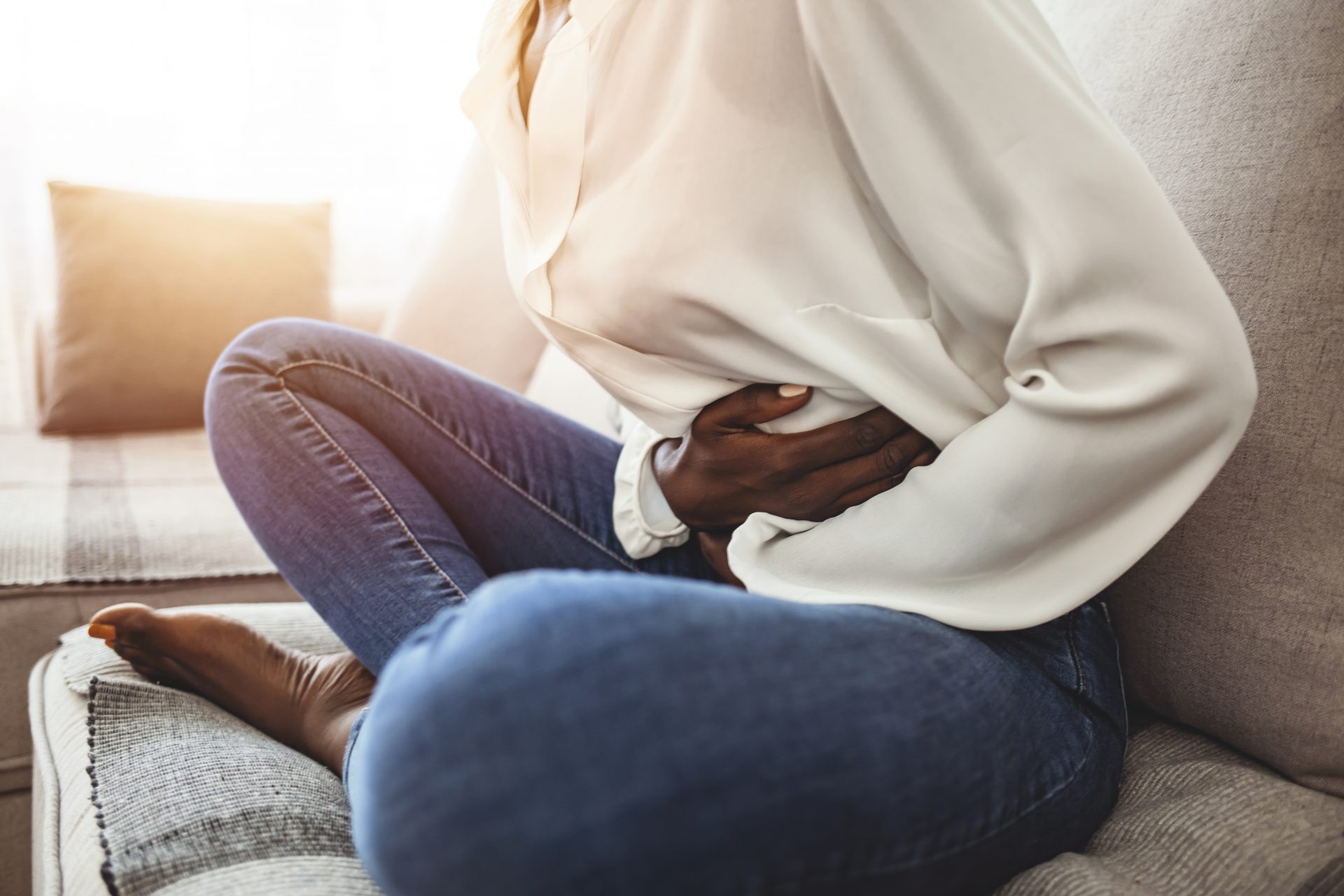‘Hot Girls Have IBS’ is trending – but is it as empowering as it sounds?
Is the ‘Hot Girls Have IBS’ TikTok trend justifying digestive issues in the pursuit of a body ideal?
From walking to summer salads, being ‘hot’ isn’t just a TikTok trend – it’s a way of life; a synonym for confidence and self-love. That was probably the motivation behind the latest ‘hot’ trend, Hot Girls Have IBS.
We aren’t here to argue with that: of course, you can be hot while you’ve got a bloated stomach. But behind the videos of women laughing about their poo problems, is something more insidious at play? Given that the landing page of the hashtag is mainly dominated by thin women who have stereotypically desirable bodies, people are now questioning whether chasing body ideals might actually be the cause of these gut issues, and asking whether we should really be normalising ‘hot girl’ habits.
You may also like
“This is what happened when I tried TikTok’s hot girl walks for a week”
None of this is to say that you can’t be hot and bloated at the same time. But in a recent Instagram post, exercise physiologist and health coach Sarah Liz King pointed out that conditions like IBS are hugely linked with disordered eating and eating disorders.
The link between IBS and disordered eating
Some really shocking stats show that, of those diagnosed with a gastrointestinal disorder including IBS, 44% have disordered eating and 16% have an eating disorder. And 98% of people with a diagnosed eating disorder also suffer from digestive issues.
You may also like
ADHD and binge eating: why are so many newly diagnosed women struggling with eating disorders?
While #HotGirlsHaveIBS have been celebrated for highlighting how gut issues and chronic syndromes can impact all of us, with the main message is that you’re not disgusting for dealing with bloating, burping, diarrhoea and constipation, normalising the condition might mean people are turning a blind eye to the cause.
On her Holistic Health Radio podcast, King went on to explain just some of the ways that disordered eating habits can lead to IBS: “When you restrict your food, your digestive system slows down. This can lead to delayed gastric emptying and a feeling of premature fullness.
“A lack of regular food intake and/or purging can lead to constipation… and anxiety can increase gastric pressure and may also make you more sensitive to pain and uncomfortable digestive symptoms.
“Your nervous system can become less responsive during eating disorders and can make constipation a more frequent symptom, and when you’re constipated and not passing stools as often as you should be, it leads to more bacteria being present in the small intestine and this can lead to a number of IBS symptoms.”

But it’s not a one-way street. Many people who develop harmful eating habits do so as a result of their pre-existing digestive problems, King says. “People who experience GI symptoms or pain often self-manage by avoiding eating, and those with digestive concerns are often guided towards changes in their diet. These diets can be restrictive, like the low FODMAP diet or elimination of entire foods or food groups.”
This was how King’s own eating disorder began. She said that she always had digestive issues growing up, but she was also an anxious child and she now believes stress was the cause of her issues. When she was 16 and studying for her exam, her stomach symptoms became worse – as did her body image. After an IBS diagnosis, she wasn’t offered mental health support but simply saw a dietitian who gave her a pamphlet telling her to cut out foods.
“I just remember being so confused and sad that I couldn’t eat the foods that I loved. But I could hear a voice that I’d never heard before telling me that this was a good thing, that I’d be healthier, that maybe I’d be smaller or lose weight because of this strict diet and it would all be under the guise of controlling my symptoms so it would never be questioned… It still plays on my mind how quiet that first thought was, and how loud it became over time,” she said.
You may also like
IBS: “I finally managed my gut health – and it did not involve a restricted diet”
Whether or not you relate to that story, it remains true that so many women struggle with their relationship with food yet are congratulated for it because of how it is deemed ‘healthy’ to eat or not eat certain things. “We have a huge group of women struggling with digestive concerns who may be unknowingly struggling with disordered eating. We also have those struggling with disordered eating who have digestive issues but look at the ‘Hot Girls Have IBS’ trend and decide to make further changes to their diet in the hope it will manage their symptoms,” she says.
It’s important to remember that suffering from IBS or eating disorders and disordered eating is never anyone’s fault. You are not to blame for your eating habits or your digestive issues. But it’s worth considering the impact that chasing certain aesthetic goals could be having on your overall health and not just accepting debilitating symptoms because other ‘hot’ people online also live with them. It’s empowering for those with chronic conditions to know they too are hot, but the link between IBS and disordered eating can’t be dismissed.
Images: Getty
Source: Read Full Article
